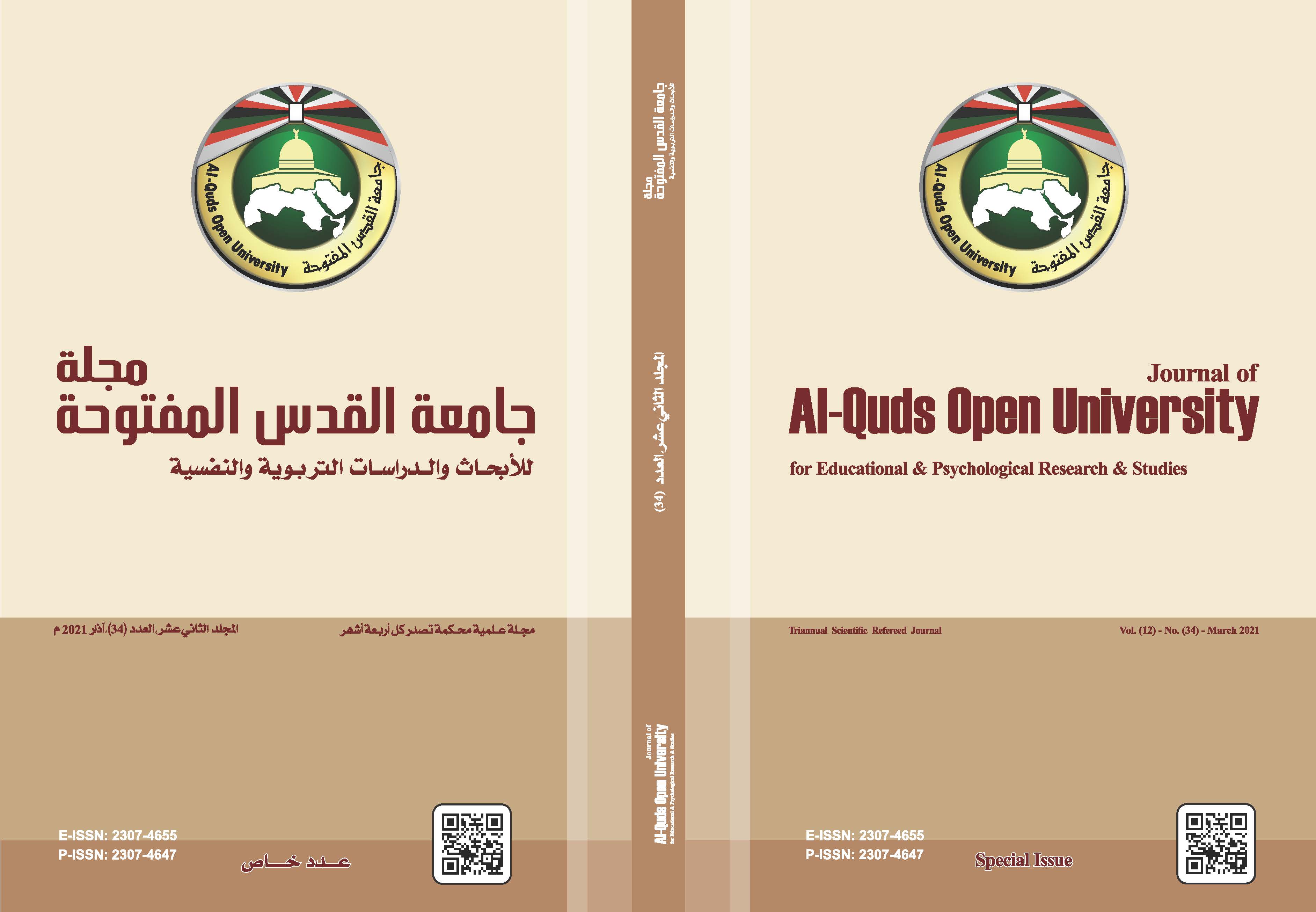Psychometric Properties of Neff’s Self-Compassion Scale on Palestinian University Students
DOI:
https://doi.org/10.33977/1182-012-034-014Keywords:
Neff’s Compassion Scale, Self- Compassion, Palestinian University Students.Abstract
This study aimed to investigate the psychometric properties of the Neff’s self-compassion scale in the Palestinian environment. Therefore, an available simple random sample consisting of 296 university students was chosen from the West Bank in Palestine to participate in the study. Cronbach α, test-retest validity was achieved. The Varimax rotation factor analysis method revealed that the Self-Compassion Scale consists of three main factors. These factors are: The self-kindness factor, mindfulness and self-awareness, and common humanity. The study found differences in self-compassion due to student gender and interaction between gender and the university location, whereas no differences were found due to the university location. Also, the study recommends the need for further studies using the scale in other environments and other age groups.
References
أولاً: المصادر والمراجع العربية
- داوود، أحمد. (2017). القدرة التنبؤية لليقظة العقلية والتعاطف الذاتي بالخلل الوظيفي لدى المرضى الاكتئاب الرئيس، رسالة ماجستير، جامعة عمان العربية.
- شاكر، عبد الحميد. (1995). علم النفس الإبداع، القاهرة: دار غريب
- العصافرة، إيهاب. (2019). التعاطف الذاتي وعلاقته بالاهتمام الاجتماعي لدى طلبة الجامعة الأردنية، مجلة الجامعة الإسلامية للدراسات التربوية 27(6): 837-855.
ثانياً: ترجمة المصادر والمراجع العربية إلى اللغة الإنجليزية
- Dawood, Ahmed (2017). Predictability of Mindfulness and Self-Compassion in Functional Impairment among Major Depression Patients, Master thesis, Amman Arab University.
- Shaker, Abel-Hameed (1995). Psychology of creativity, Cairo: Dar Alghareeb.
- Asafreh, Ehab (2019). Self-Compassion and its Relationship to the Social Interest with the University of Jordan Students. IUG Journal of Educational and Psychology Science 27(6): 837-855.
ثالثاً: المصادر والمراجع الأجنبية
- Anderson, A. (2015). Translation and Psychometric Evaluation of Neff’s Self-Compassion Scale in a Swedish Sample (Dissertation). Retrieved from http://urn.kb.se/resolve?urn=urn:nbn:se:mdh:diva-44350
- Carvalho, S., Trindade I., Gillanders D., Pinto-Gouveia J. and Castilho, P. (2019) Self-Compassion and Depressive Symptoms in Chronic Pain (CP): A 1-Year Longitudinal Study. Mindfulness 13, https://doi.org/10.1007/s12671-019-01292-7.
- Deniz, M., Kesici, S., & Sumer, A. (2008). The validity and reliability of the Turkish version of the self-compassion scale. Social Behavior and Personality, 36(9), 1151–1159. https://doi.org/10.2224/sbp.2008.36.9.1151.
- Halamova, J., Kanovsky, M., & Pacuchov, M. (2017). Self-compassion scale: IRT psychometric analysis, validation, and factor structure - Slovak translation. Psychologica Belgica, 57(4): 190–209. https://doi.org/10.5334/pb.398. Kotsou I, Leys C (2016) Self-Compassion Scale (SCS): Psychometric Properties of the French translation and its relations with psychological well-being, affect and depression. PLoS ONE 11(4).
- Krakovsky, M. (2017). The Self-Compassion Solution: Building on a Buddhist principle, psychologists are learning how being kind to yourself can bolster resilience, buffer against stress and improve relationships. Scientific American Mind, 175.
- Kumlander S, Lahtinen O, Turunen T, Salmivalli C (2018) Two is more valid than one, but is six even better? The factor structure of the Self-Compassion Scale (SCS). Plos One 13(12).
- Mosewich, A., Mack, D., Gunnell, K., & -Ferguson, L. (2018). Women athletes’ self-compassion, self-criticism, and perceived sport performance. Sport, Exercise, and Performance Psychology, 7(3), 297-307. http://dx.doi.org/10.1037/spy0000127.
- Neff, K. (2003a). Development and validation of a scale to measure self-compassion. Self and Identity, 2: 223-250
- NEFF, K. (2003b). Self-Compassion: An Alternative Conceptualization of a Healthy Attitude Toward Oneself, Self and Identity, 2: 85–101.
- Neff, K. (2012). The Science of Self-Compassion. In C. Germer & R. Siegel (Eds.), Compassion and Wisdom in Psychotherapy (pp. 79-92). New York: Guilford Press.
- Neff, K., & Dahm, K. (2015) Self-Compassion: What it is, what it does, and how it relates to mindfulness, New York: Springer.
- Muris, P., Meesters, C., Pierik, A. et al. (2016). Good for the self: Self-compassion and other self-related constructs in relation to symptoms of anxiety and depression in Non-Clinical Youths. Journal of Child and Family Studies 25(2): 607-617.
- Sanderman, R., Schroevers, J., & Lopez, A., (2018). A Close Examination of the Relationship Between Self-Compassion and Depressive Symptoms, Mindfulness, 9: 1470-1478.
- Yarnell L., Stafford R., Neff K., Reilly, E., Knox, M. & Mullarkey, M. (2015) Meta-analysis of gender differences in self-compassion. Self and Identity, 14(5):1-22.
Downloads
Published
How to Cite
Issue
Section
License
- The editorial board confirms its commitment to the intellectual property rights
- Researchers also have to commit to the intellectual property rights.
- The research copyrights and publication are owned by the Journal once the researcher is notified about the approval of the paper. The scientific materials published or approved for publishing in the Journal should not be republished unless a written acknowledgment is obtained by the Deanship of Scientific Research.
- Research papers should not be published or republished unless a written acknowledgement is obtained from the Deanship of Scientific Research.
- The researcher has the right to accredit the research to himself, and to place his name on all the copies, editions and volumes published.
- The author has the right to request the accreditation of the published papers to himself.







2.png)






_2.png)

